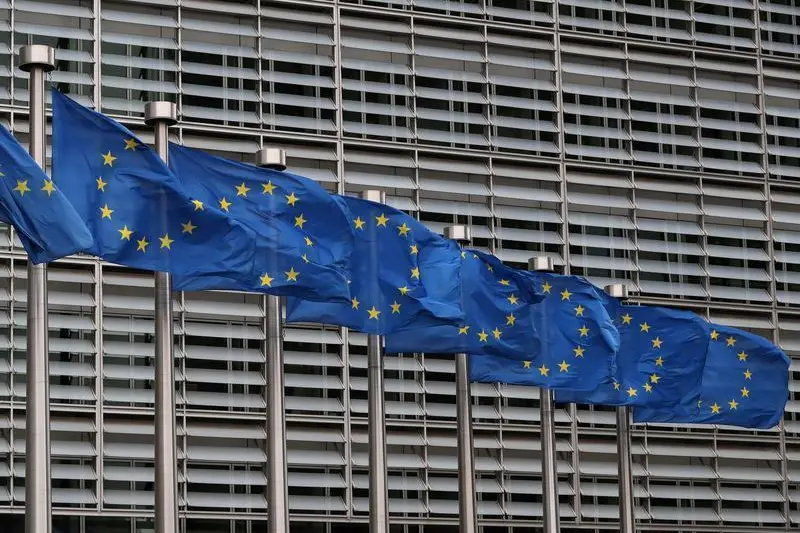PHOTO
BRUSSELS - The EU executive plans to raise more than 140 billion euros ($140 billion) to soften the blow to consumers from soaring energy prices by skimming off revenues from low-cost electricity generators and making fossil fuel firms share windfall profits.
European Commission President Ursula von der Leyen outlined the plan on Wednesday as the 27-member European Union grapples with an energy crisis fuelled by Russia's invasion of Ukraine.
Governments across Europe have already ploughed hundreds of billions of euros into tax cuts, handouts and subsidies to tackle a crisis that is driving up inflation, forcing industries to shut production and hiking bills ahead of winter.
"In these times, profits must be shared and channelled to those who need it most," von der Leyen told the European Union's Parliament in Strasbourg, adding that the plans should raise more than 140 billion euros for member states to rechannel into helping businesses and retail consumers.
EU countries will have to negotiate the Commission's proposals and agree on final laws.
The plan did not include an earlier idea to cap Russian gas prices. EU countries are divided over whether broader gas price caps would help or harm efforts to secure winter supplies.
With gas price caps off the table, at least for now, some diplomats were optimistic that deals could be struck at a meeting of EU energy ministers on Sept. 30.
Von der Leyen said the Commission was "discussing" price caps and had launched talks with Norway on lowering gas prices.
A draft of the full Commission proposals, seen by Reuters, would skim off excess revenues from wind and solar farms and nuclear plants - by imposing a cap of 180 euros ($180) per megawatt hour (MWh) on the revenue they receive for generating electricity. Full details are due to be published on Wednesday.
That would cap generators' revenues at less than half of current market prices. Germany's front-year electricity price was trading at just below 500 euros/MWh on Wednesday.
'INVESTOR CONFIDENCE'
Some energy firms have questioned how much cash the EU plan would raise, since generators like wind farms sell their power under fixed-price contracts, and are therefore not reaping windfall profits from high market power prices.
"The measures proposed to cap revenues for renewable and low-carbon electricity producers risk damaging investor confidence," said Kristian Ruby, Secretary General of Europe’s electricity industry body Eurelectric.
Fossil fuel firms would also face a windfall levy under the EU plans, to claw back profit from soaring prices stoked by Russia slashing gas deliveries since its invasion of Ukraine.
Oil, gas, coal and refining firms would be required to contribute 33% of their taxable surplus profit from fiscal year 2022, the draft, which could still be changed, stated.
Von der Leyen said the bloc was working to establish a "more representative benchmark" price for gas than the Dutch Title Transfer Facility (TTF), where prices have rocketed higher.
Brussels is also looking into amending collateral requirements in energy markets to help companies facing a liquidity squeeze, she said.
The draft EU measures also include a requirement for countries to cut electricity use during peak hours, in a bid to save fuel.
EU countries' gas storage caverns are now 84% full - a healthy pre-winter level - but analysts say Europe will still need deep cuts in fuel use over winter to avoid shortages.
Separately, von der Leyen said the EU was planning a deeper overhaul of its electricity market to decouple power prices from the soaring cost of gas.
(Reporting by Kate Abnett and Ingrid Melander; additional reporting by Susanna Twidale; Editing by Mark Potter, Edmund Blair and Alexander Smith)





















